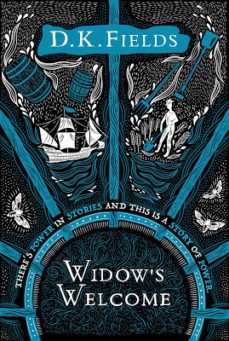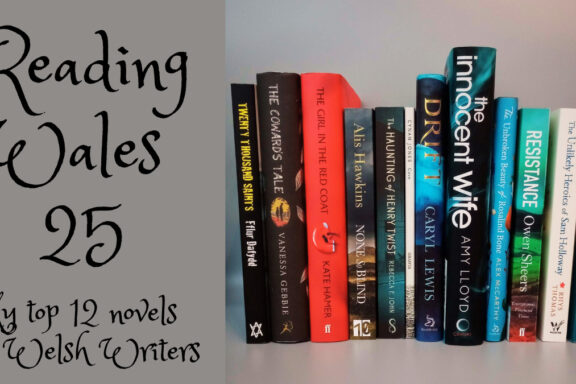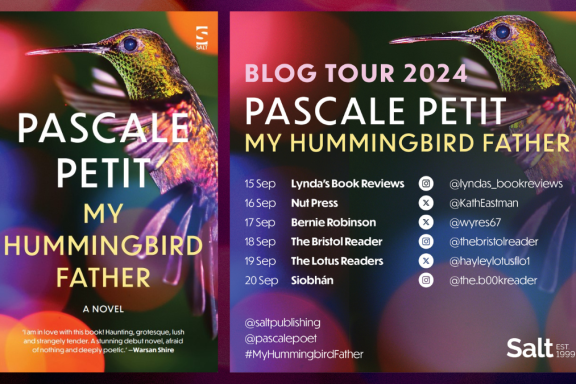 Widow’s Welcome is the first book in the Tales of Fenest trilogy, set in a world where elections turn on the stories Realms tell, determining which one rules and when power passes to another.
Widow’s Welcome is the first book in the Tales of Fenest trilogy, set in a world where elections turn on the stories Realms tell, determining which one rules and when power passes to another.
Dead bodies aren’t unusual in the alleyways of Fenest, capital of the Union of Realms. Especially not in an election year, when the streets swell with crowds from near and far. Muggings, brawls gone bad, debts collected – Detective Cora Gorderheim has seen it all. Until she finds a Wayward man with his mouth sewn shut.
His body has been arranged precisely by the killer and left conspicuously, waiting to be found. Cora fears this is not only a murder, but a message.
As she digs into the dead man’s past, she finds herself drawn into the most dangerous event in the Union: the election. In a world where stories win votes, someone has gone to a lot of trouble to silence this man. Who has stopped his story being told?
For a book set in a world where power emanates from stories, it seems only fitting that there are stories within stories in Widow’s Welcome. Here we’re told the election stories from two of the six Realms, the Casker and the Lowlander, with two more to come in each of the subsequent books. They’re very different stories but telling in what each one reveals about the Realm it represents and how the wider world within which those Realms reside, functions. I enjoyed seeing layer upon layer slowly uncovered as I progressed further into the world of the book, and am keen to learn more as the series continues.
I don’t completely understand how the Swaying Audience works just yet, and am hoping this is something that becomes clearer with the next two books. I kept flicking back to the index at the beginning to try and get a better handle on them and what the gods represent. In some cases, it’s clear enough, but in others, it’s less obvious or they cover multiple things, not all of which share an obvious or immediate connection.
The election stories are framed by a murder-mystery and this helped to lodge the book in more familiar territory for me, while the Realms and their relationships to one another remained more of a mystery. That’s not to say that the case isn’t an unusual one but we do at least have a police force in the Union of Realms and a detective to investigate it. She’s a young detective called Cora Gorderheim and her family backstory is riddled with secrets and one likely to be teased out over the course of the trilogy.
It might sound confusing to have so many stories to contend with but each election story is long enough to be immersive while you’re reading it but not so long that you forget or lose the thread of where Cora’s investigation takes her. In fact, every time I heard Cora’s distinctive voice, it worked like a tuning fork, bringing me back to Fenest after each Realm’s story had been told, and focusing me once again on the case she’s working.
Cora’s a great character with a strong voice and a sharp suit, a weakness for games of chance and a propensity for smoking bindleleaf. I liked her immensely and want to know more about her decision to become a detective, and find out why she chose a life that revolves around her cramped cupboard of an office and the brothels, gaming houses and altogether seedier side of Fenest.
As the first in a trilogy, this sets up the world of the novels and its society well. I learned enough to pique my interest about the Union of Fenest, its constituent Realms and start to understand how they all tick, and want to see how the whole picture slots together. I found the case Cora investigates to be a sufficiently unusual one that I wanted to know who’s behind it and why, although I also want to know more about Cora herself and her odd place in this world, within the entire hierarchy of Fenest. I also loved the glimpse at the end of where this may be headed and who we might get to meet in the next book.
I really enjoyed the two election stories we’re told in this first book; they’re stories we were asked to vote on, after hearing an excerpt read at the book’s launch. I find it a little concerning now, after having read the entirety of both, that I’d no longer vote the same way as I did on that launch night. Art mirroring our current political climate, perhaps? (Not that I’d vote differently in that real-life instance.)
This was an immersive and involving read which still has me thinking about the Realms, their traits, alliances and rivalries, weeks after having finished reading Widow’s Welcome. I’m intrigued and eager to see where the next instalment takes us in the Tales of Fenest.
Widow’s Welcome by D.K.Fields is published by Head of Zeus, an independent publishing house. It is available as an audiobook, ebook and in hardback with the paperback due out next year. You can find it at Amazon UK or buy it from Hive instead, where each purchase helps support your local independent bookshop.
Widow’s Welcome is the first book in the Tales of Fenest series and DK Fields is the writing partnership of novelist David Towsey and novelist and poet Katherine Stansfield. For more information, check out their DK Fields site or follow them on Twitter.
My thanks to the publisher for making a review copy available via NetGalley.



This sounds like a book I should put on my ‘want to read’ list and then wait until the other two are out before embarking on a marathon read. I hate it when I have to wait for a couple of years before being able to read the next instalment.
Better not give this to any of our current politicians . They might get some ideas from it at the next elections.